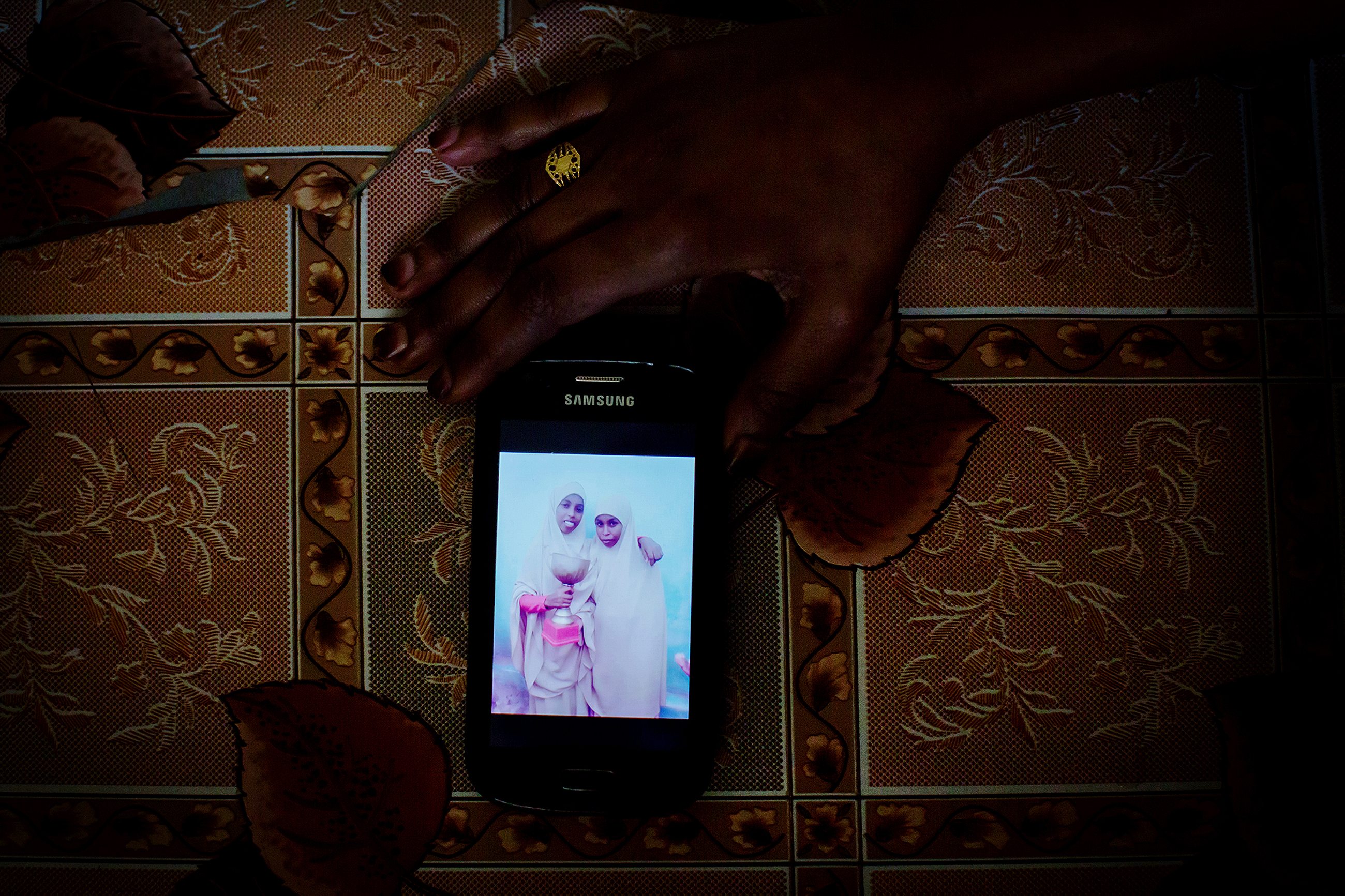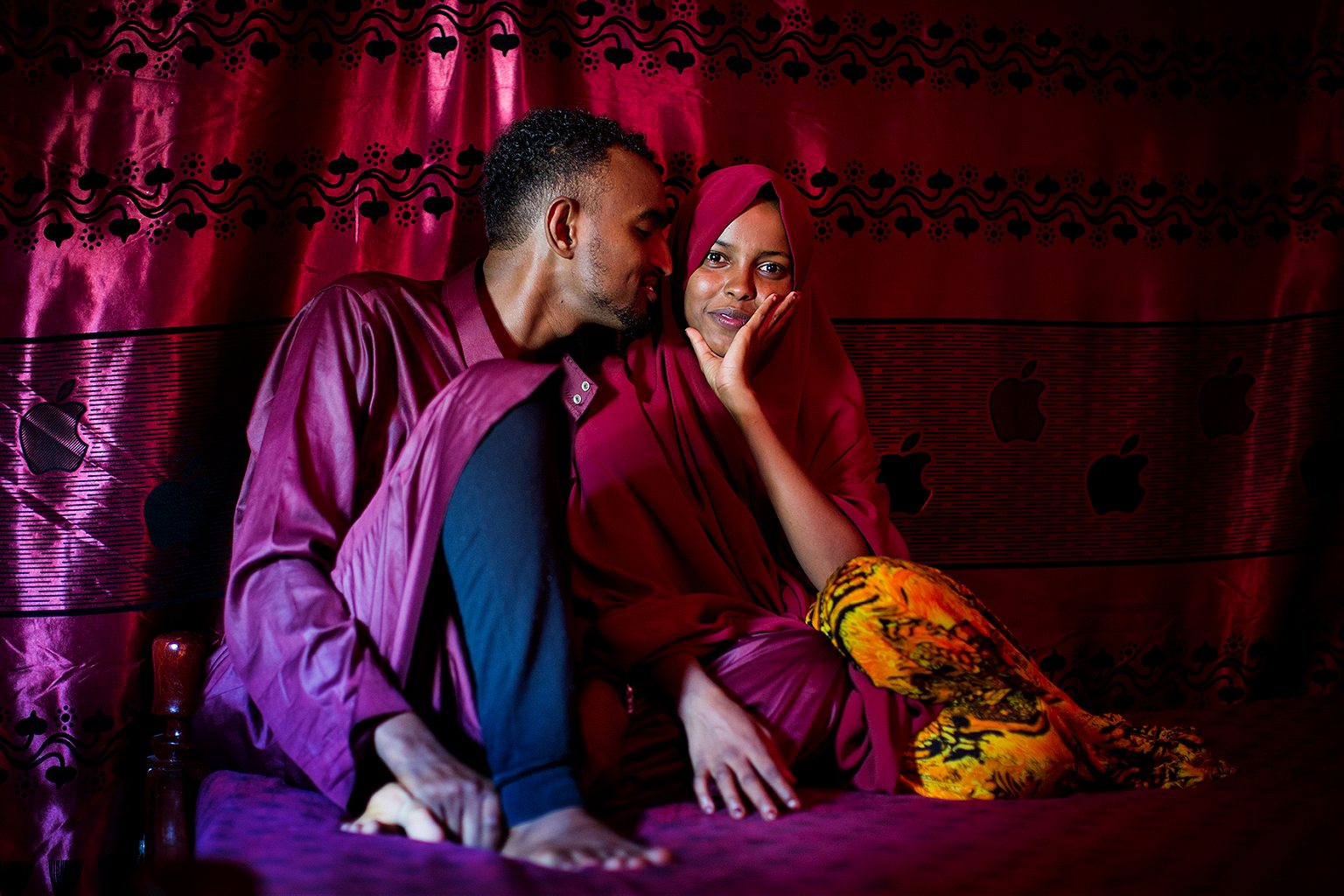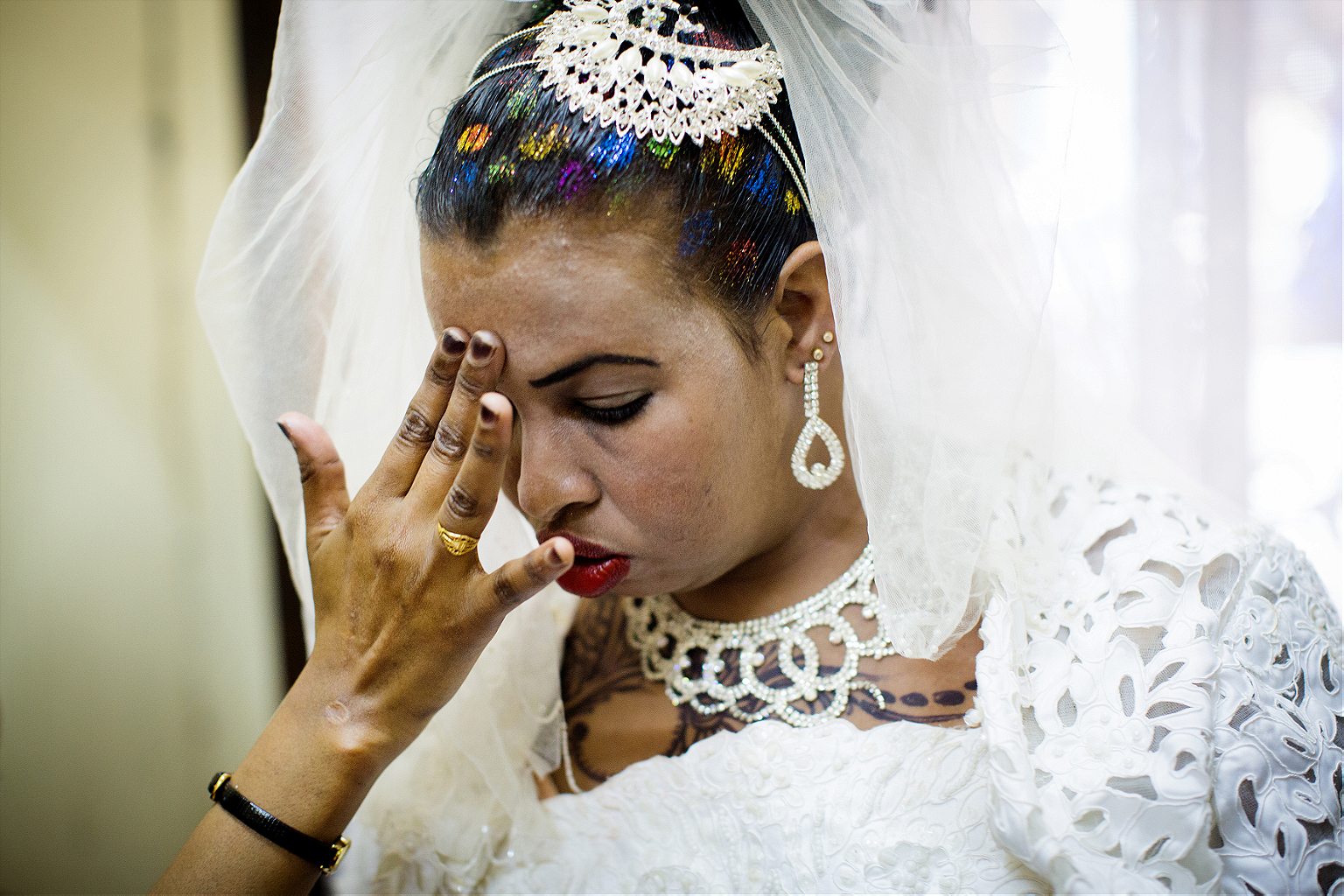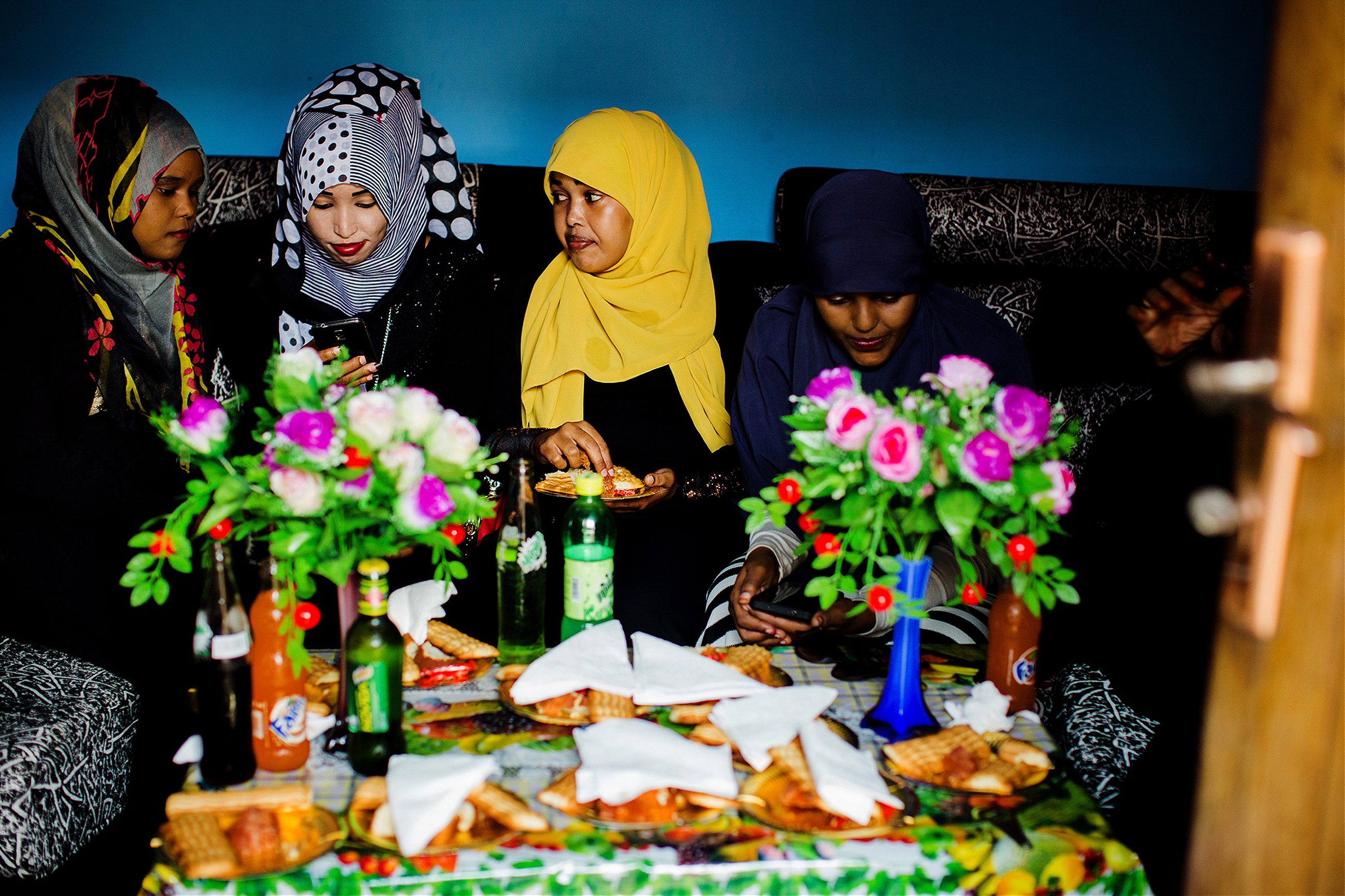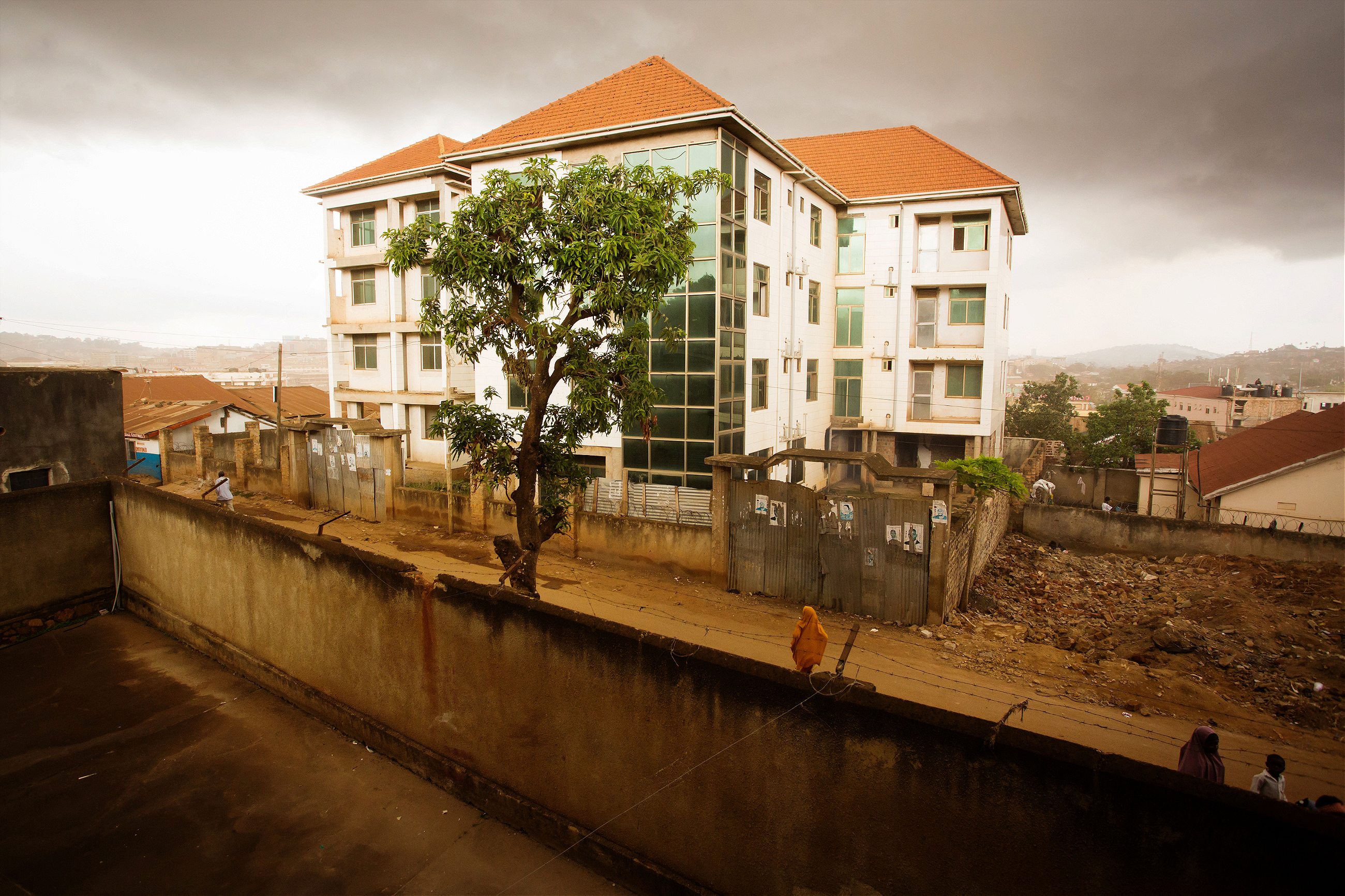Meet the young women of Kampala’s Somali district.
After two decades of chaos, conflict, and violence in their home country, more than 1.5 million Somalis remain displaced around the world. To them, Somalia is no longer a physical country but rather a diaspora, a culture. Many build a life in African countries such as Uganda or Kenya, awaiting resettlement in the U.S. or Europe, eager to leave the continent once and for all.
In Kampala, tucked away in a corner of the humming downtown area, lies Kisenyi, a small and rough-looking bunch of dusty streets bursting with business and trade, home to thousands of Somalis. They run hotels, supermarkets, shops, and market stalls, selling anything from food to clothes and beauty products. Men trade in forexes, work as tailors and are seen visiting the nearby mosques, while women sell fruit, Somali food, and tea on the streets.
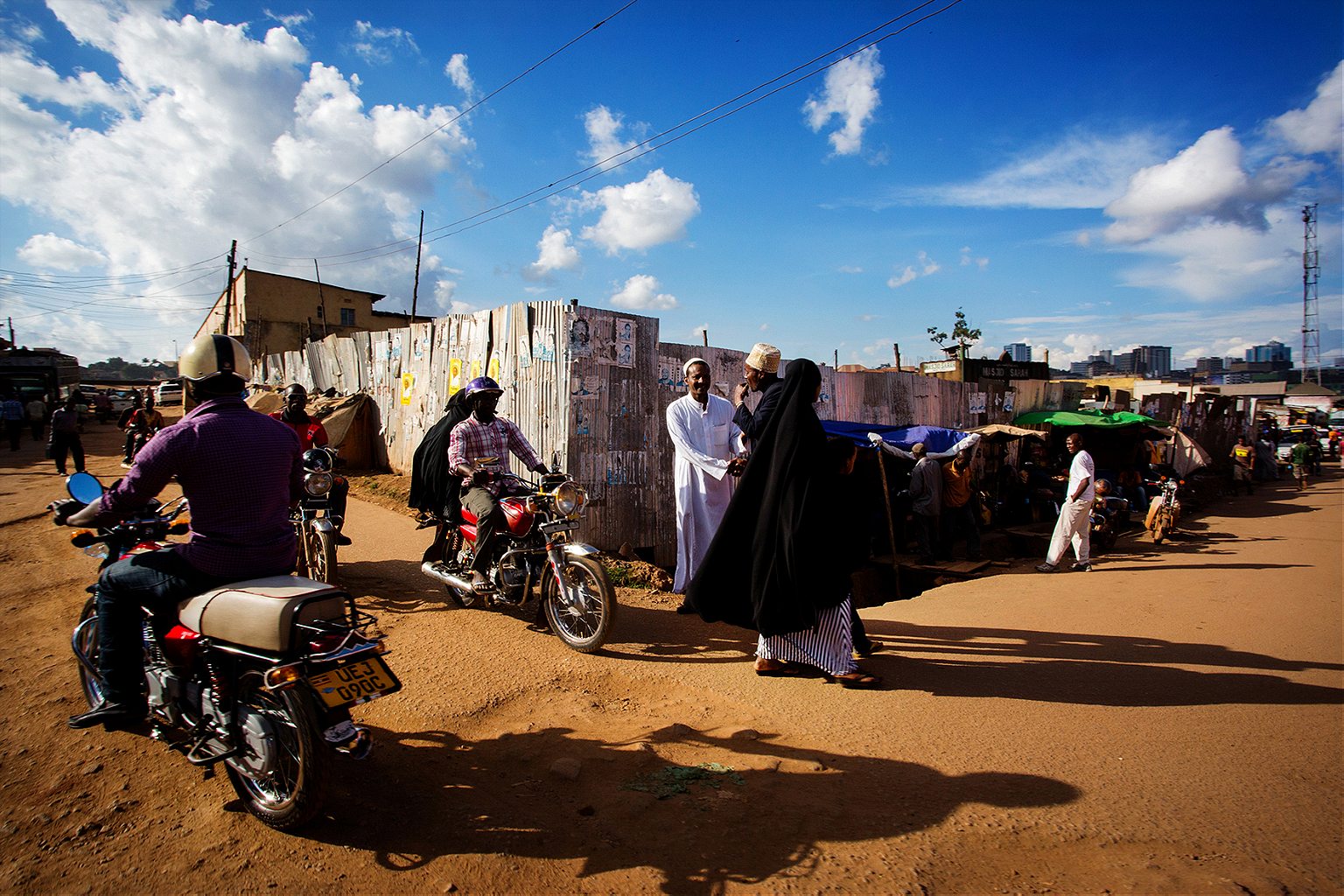
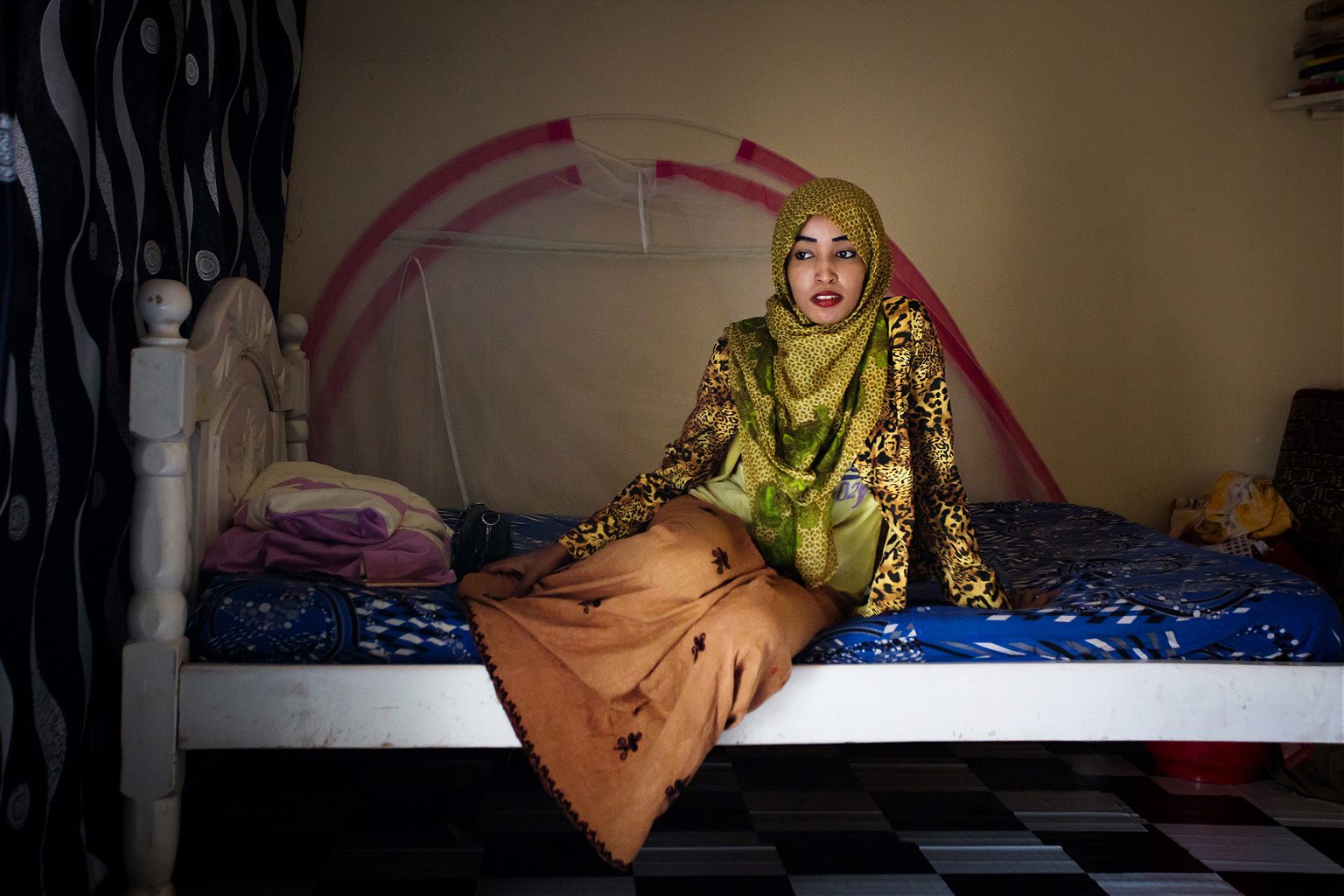
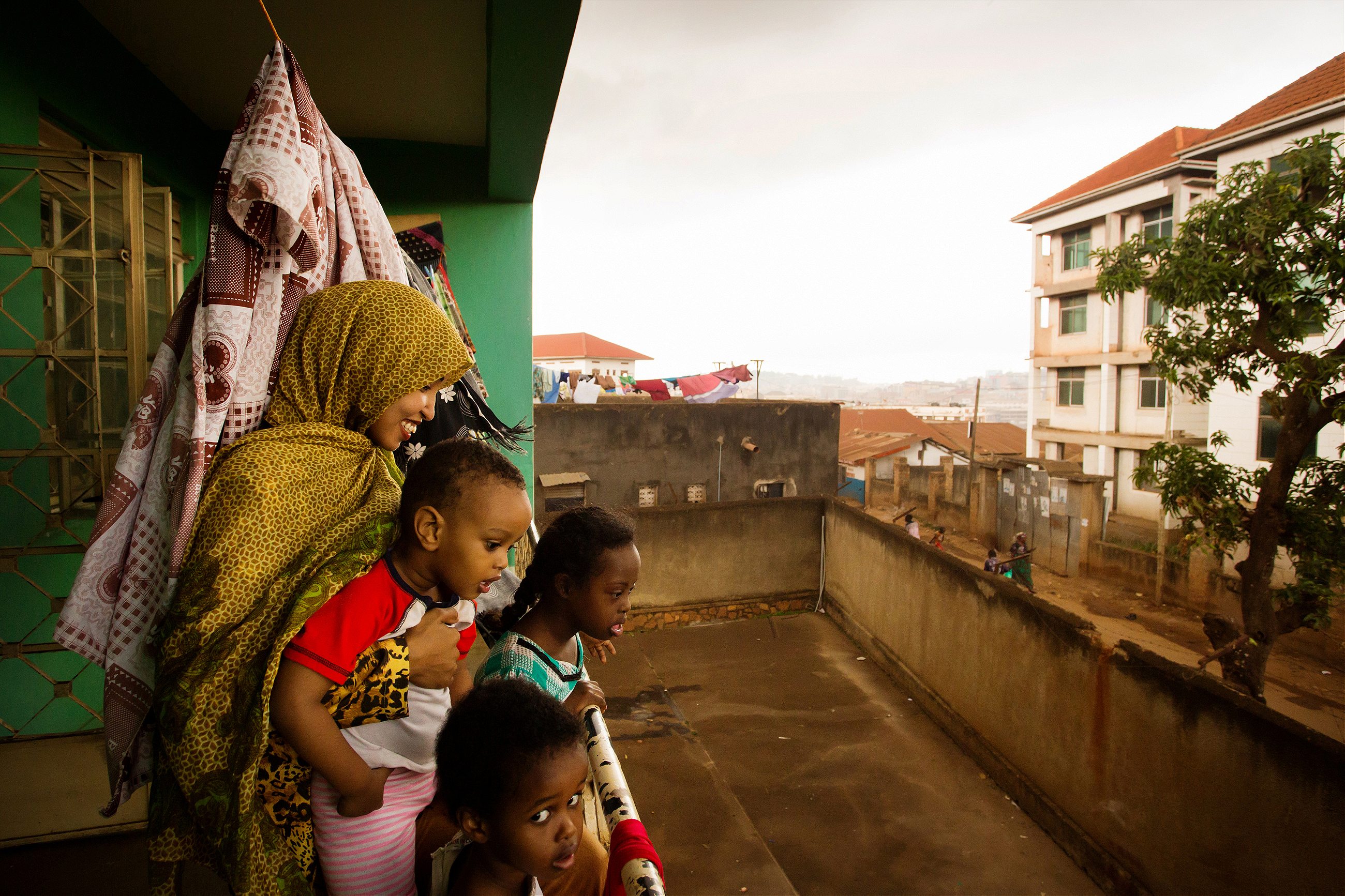
To document migration from within Africa, I met the young women in Kampala’s Little Mogadishu, for whom exile felt like life in a parallel universe. Connected to family, friends, and dates all over the world almost 24/7, they seemingly maintain their bonds through telephone, internet, social media, rotating wedding videos, and gossip rather than living in the actual country they inhabit. We’re in Uganda, but could be anywhere, really.
While they hold on to everything Somali––what they remember of the food, customs, traditions––exile is an overall liberating experience. Stricter cultural authorities are weakened by circumstance, and practices like female genital mutilation are harder to execute in this environment. Life feels a little more free.
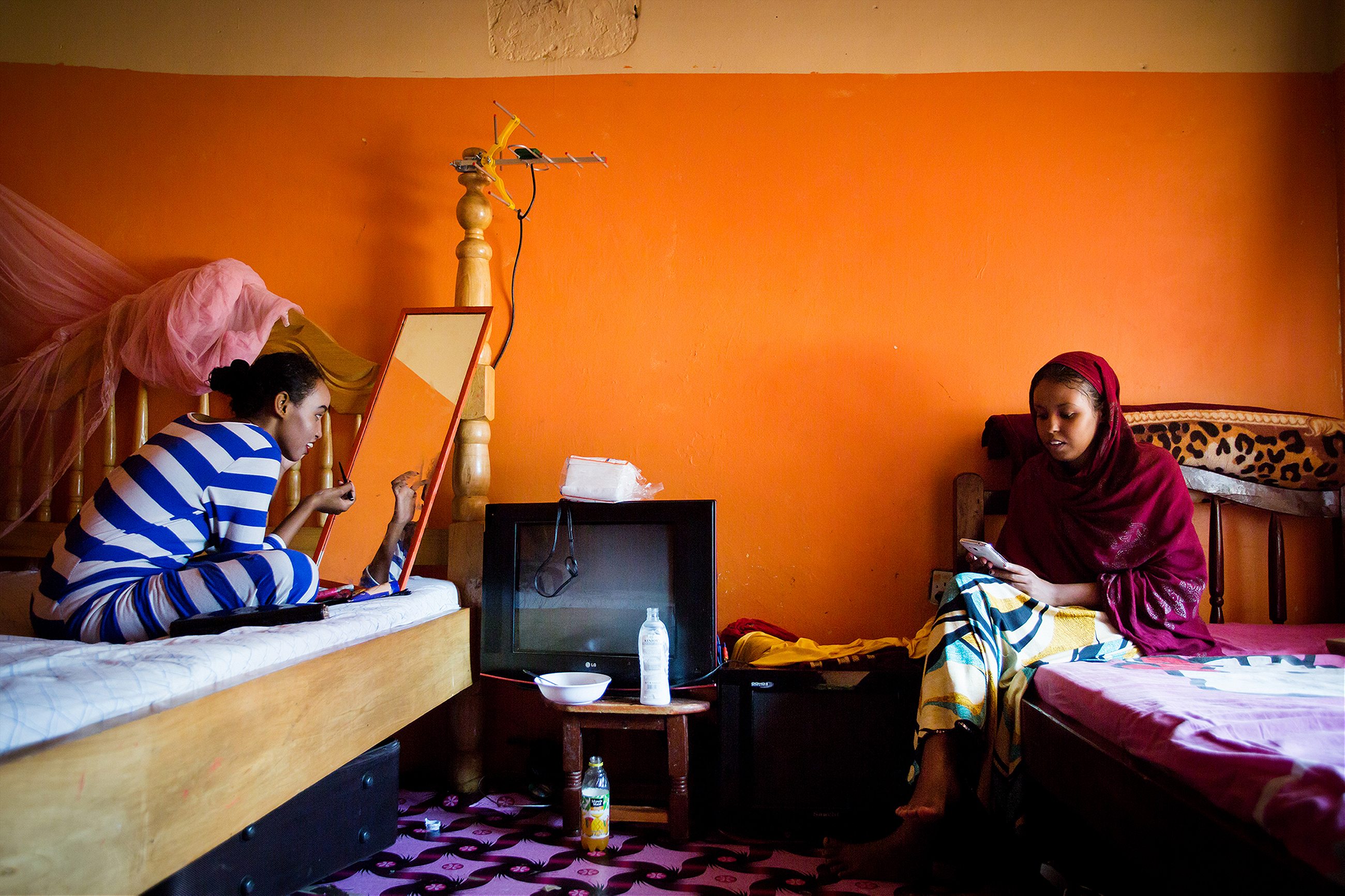
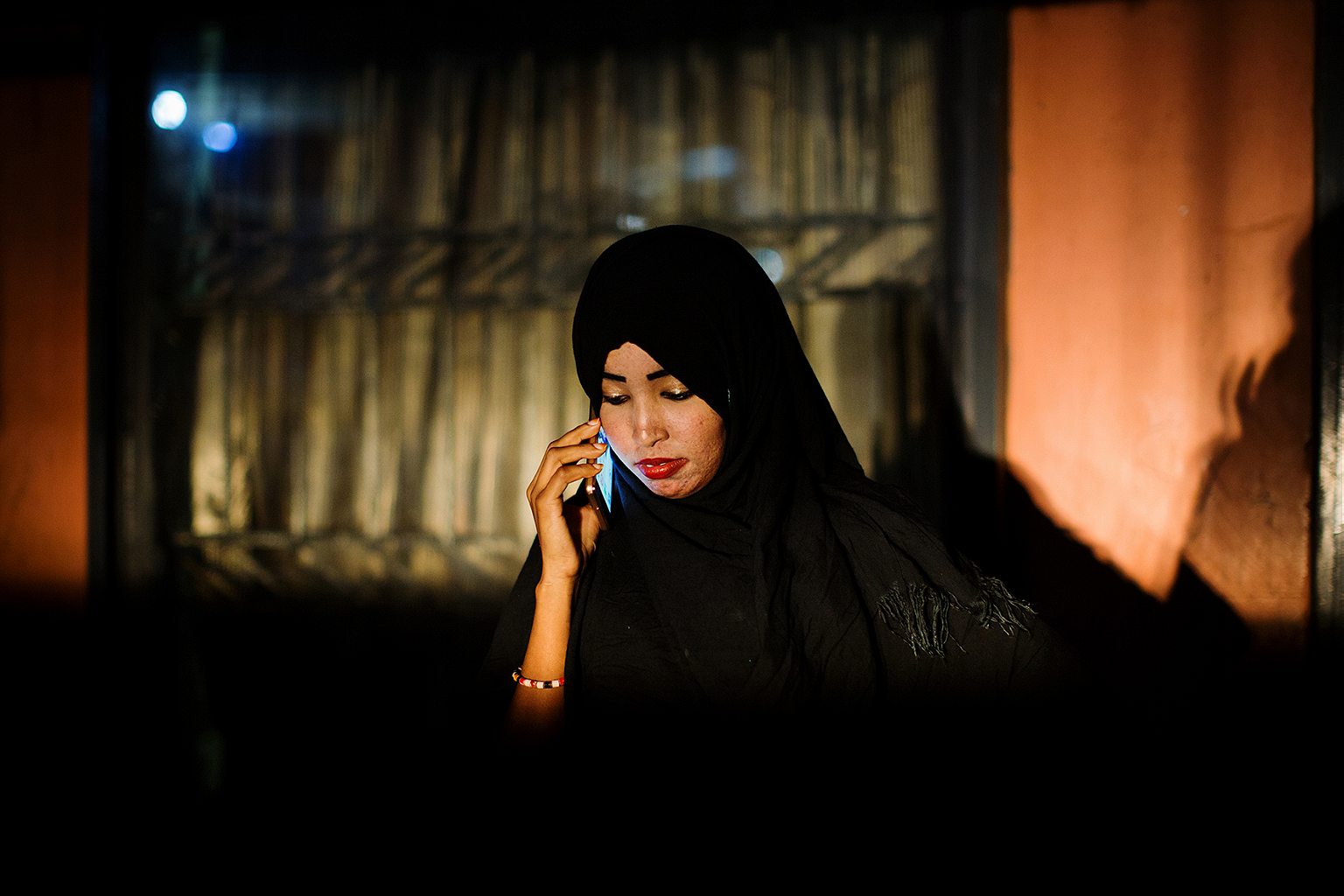
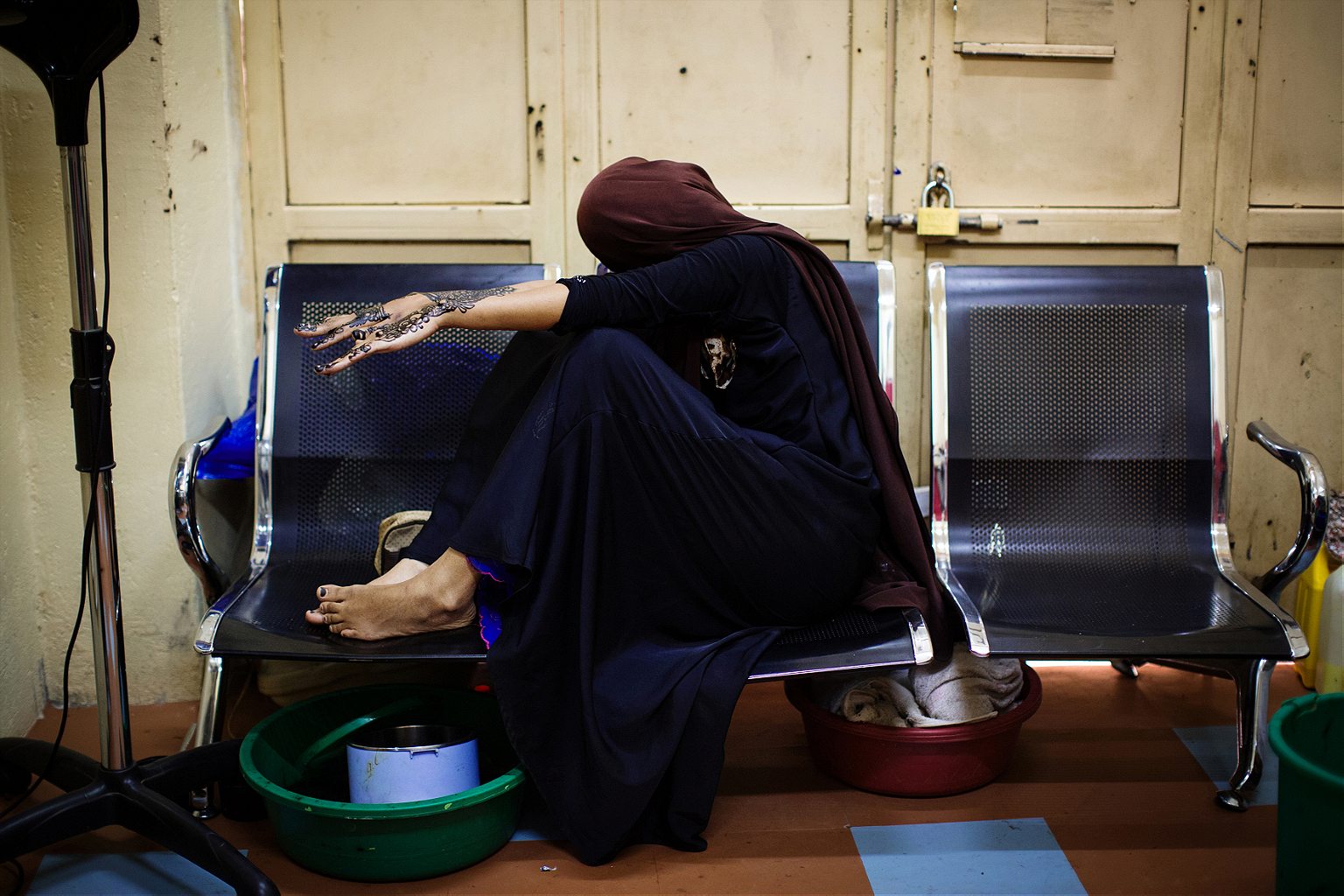
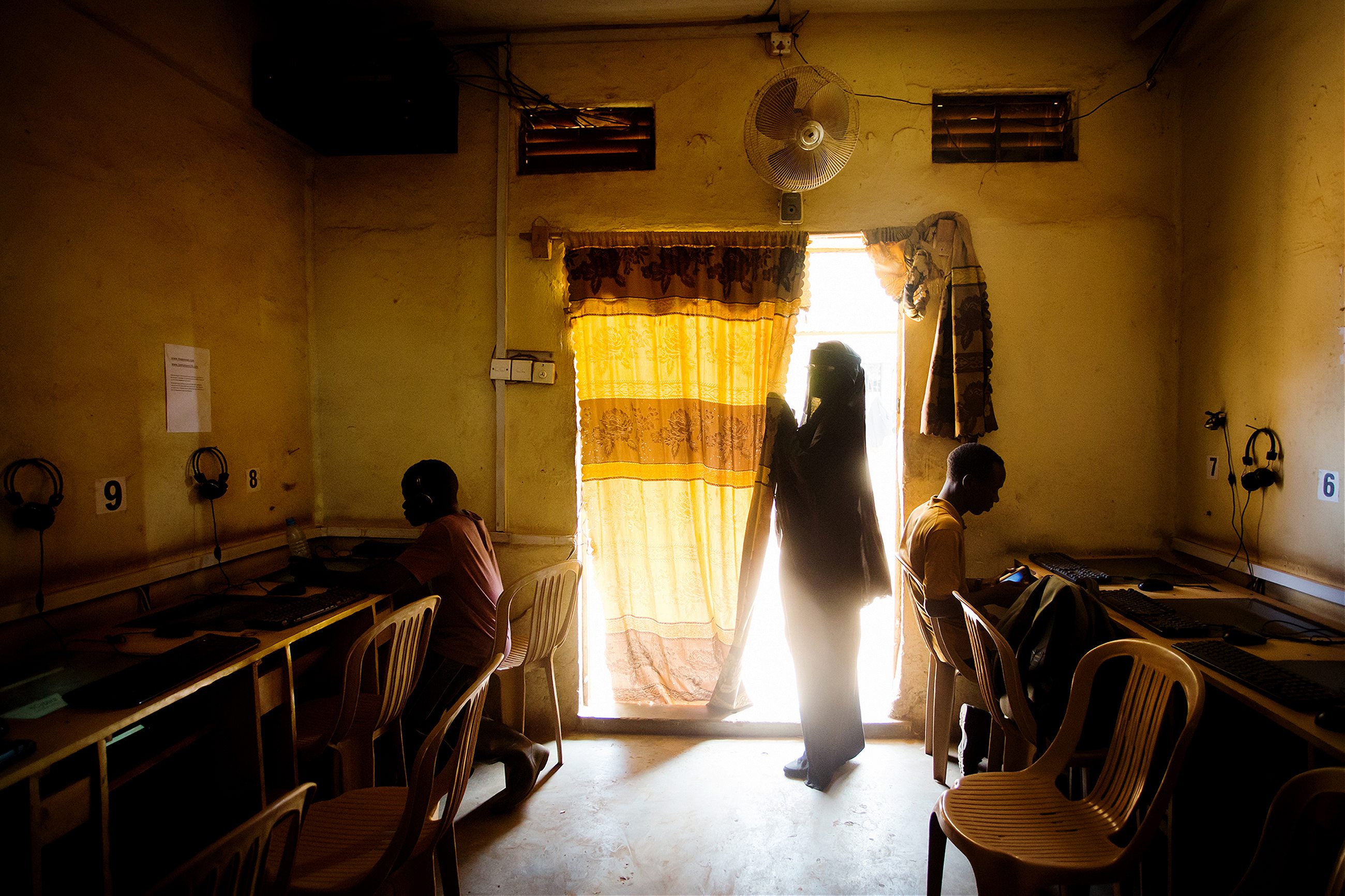
Yet exile is also a hardship that bears stigma, everyday hostilities, the feeling of not belonging, and a haunting past. Uganda is very open to refugees in general and grants many immediate rights, but the women told stories of harassment in crowded marketplaces, or of being called names like Al-Shabbab and being stigmatized as outsiders.
Though they hope to leave again, for now the young women create a home away from home for each other, often in absence of men, who have either died, fled, or stayed behind in Somalia. They dream of romantic love just like anyone their age, yet often give in to the promising material stabilities of older and more established candidates. The further up north on the globe, the better.
